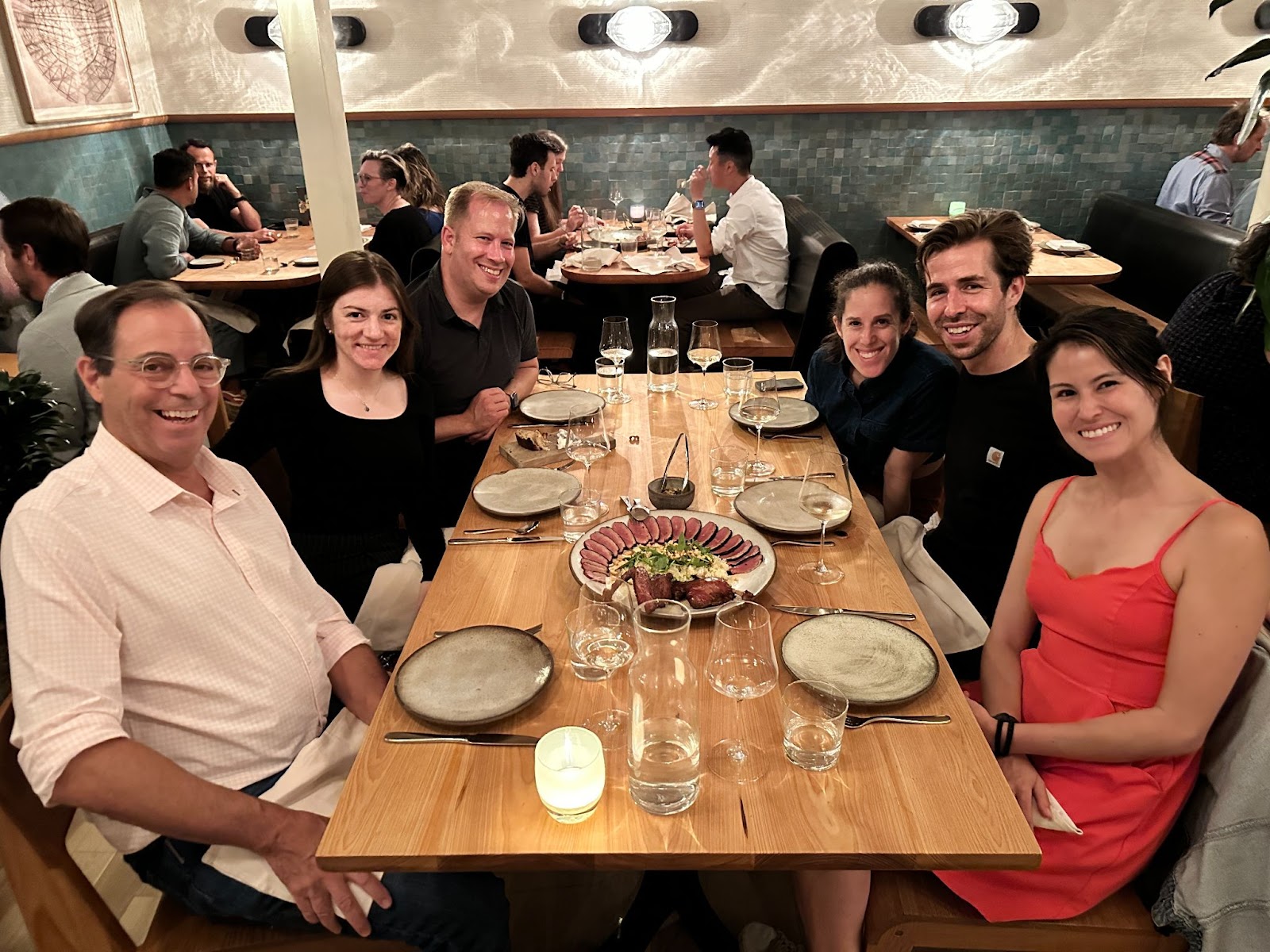
Throughout my academic career, I have always been highly motivated by the innumerable ways we can leverage fundamental scientific breakthroughs to provide creative solutions to global problems. I’m particularly interested in the intersection of agriculture, public health, and our changing environment. As a fourth-year PhD candidate in Dr. Philipp Zerbe’s lab in the Plant Biology Department at UC Davis, I investigate how plants produce the metabolites we regularly use in food and medicine to create improved crops and bioproducts. However, as a scientist, I realized the process by which our discoveries are translated out of the lab and into real-world applications and commercializable products was lost on me. Fortunately, the IIFH Innovator Fellowship provided an invaluable opportunity to gain insights into this process and first hand experience with the entrepreneurial ecosystem, start-up company life-cycle, fundraising, and venture capital.
From June – December 2024, I had the privilege of working with FTW Ventures, an early-stage venture capital firm investing in companies using disruptive science and technology to transform our food system. FTW’s mission is to nurture the food system for future generations by supporting leading founders, advising global corporations and deploying capital from high-quality investors to make meaningful change for profit, people, and planet. Their core values are to modernize, preserve and amplify the best of what nature has to offer, creating more value from our soil, water, and nutrients, and nurture humankind to improve every person’s life. FTW’s mission and core values were something I highly resonated with and aligned very closely with my academic research and ultimate goal of improving food production so that it is sustainable, resilient, plentiful, and nutritious, meeting the needs of our rapidly growing population. At FTW, I integrated my technical knowledge of plant biology with their business expertise to critically evaluate plant biotechnology related start-ups and develop an investment thesis on “super” plants, assessing potential investment opportunities and areas of caution.
I was able to gain a thorough understanding of how investment decisions are made, from sourcing start-ups and preliminary intro calls to evaluating technical and business strategies to ultimately, closing the deal. I learned that it takes much more than a good idea and cool scientific technology to turn into a venture-backable company. Factors such as the problem and market opportunity, competition, traction, and business model are all crucial to a start-up company’s success, but areas we commonly neglect as scientists. Additionally, I realized that finding a balance between technical accuracy and clear science communication to the broader public can be challenging, and another commonly neglected skill by scientists, yet critical for actually deploying your technology into the market. These “epiphanies” have greatly shaped the way I now view my own science. I am able to assess it beyond a technical perspective, taking into consideration business and entrepreneurial mindsets as well, a craft I strongly feel all researchers would benefit from.
Another key highlight for me was the importance of network growth and connections in the food & ag innovation space. During the course of my fellowship, I was able to attend many conferences and networking events, which allowed me to foster career-long relationships with other investors, founders, corporates, and university partners. I had the pleasure of attending SynBioBeta in San Jose, CA and the World Agri-Tech Innovation Summit in London, UK. Participation in these events allowed me to draw contrasts between industry and the traditional academic conferences I had grown accustomed to. More about my experiences and key takeaways can be found here and here, as published in FTW’s monthly newsletter to their partners.
Finally, as a result of this fellowship, I was able to get my foot in the door of many corporate companies and start-ups in the ag-tech sector, an opportunity I likely wouldn’t have had otherwise, and which was one of my favorite experiences by far. I visited FTW’s portfolio companies Izote Biosciences in Berkeley, CA and Phytoform in Harpenden, UK. Being able to sit with the founders and hear about what it takes to launch a start-up from the ground up was extremely insightful and rewarding. I also established connections with other start-ups in the Sacramento area and created collaborations that will be beneficial as I transition back to my PhD projects and work on wrapping up publications and my dissertation. Via my newly expanded network, I was exposed to a multitude of riveting careers outside of academia where I can use my technical skills to make a positive impact on society. For example, VC, industry R&D, and strategy consulting in the ag biotech sector are all possibilities I am strongly considering post-grad. Regardless of where I end up, I know the IIFH Innovator Fellowship has equipped me with the toolkit necessary to thrive in any of these positions. I am excited to harness my newly developed entrepreneurial skills and contribute to new innovations that help foster a healthier, more sustainable, and equitable food system.
I would like to express my extreme gratitude to the FTW team: Brian Frank, General Partner; Rob Wilder, Venture Partner; and Tawny Scanlan and Jenn Burka, Investors; for their invaluable mentorship and showing me what it means to be a real venture capitalist, not just the kind we see on Shark Tank! I would also like to thank Dana Armstrong Hughes and the rest of the IIFH team for their continuous support throughout my entrepreneurial journey.
